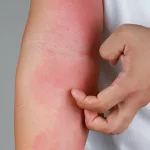Unlike bacteria, viruses aren’t affected by antibiotics. Most viral illnesses simply need to run their natural course. Keeping up fluid intake and using over-the-counter medications to reduce fever can help ease symptoms while the infection resolves.
A viral fever is any elevated body temperature that results from a viral infection. Viruses are microscopic organisms that spread readily from person to person.
When you catch a viral illness, such as a common cold or influenza, your immune system ramps up its activity. Part of that response is often raising your body temperature to make the environment less favorable for the virus and other pathogens.
The average normal body temperature for many people is about 98.6°F (37°C). A reading 1°C or more above that is generally considered a fever. Depending on the infection, a fever may persist for a few days to a week or even longer.
While the virus is doing its work, there are several things you can do to manage symptoms. Continue reading to learn more.

Know when to see your doctor
Fever is usually not dangerous, but extremely high fevers can carry risks.
For children
High fevers are usually more concerning in young children than in adults. Contact a healthcare provider in these situations:
- Children ages 0 to 3 months: Rectal temperature is or higher.
- Children ages 3 to 6 months: Rectal temperature exceeds 101°F (38°C) and the child is unusually irritable or drowsy.
- Children ages 6 to 24 months: Rectal temperature above 101°F (38°C) that persists for more than 24 hours. If additional symptoms such as a rash, cough, or diarrhea develop, call sooner.
For children 2 years and older, reach out to a doctor if their fever repeatedly goes above 100.4°F (38°C). Also seek medical advice if your child has a fever and:
- appears unusually listless, irritable, or has other severe symptoms
- has a fever lasting longer than 3 days
- the fever does not respond to medication
- they avoid eye contact with you
- they cannot keep fluids down
For adults
Adults can also face risks from fevers in certain cases. See a doctor for a fever of 100.4°F (38°C) or higher that does not improve with medication or lasts more than 3 days.
Also seek care if fever is accompanied by symptoms such as:
- intense headache
- skin rash
- sensitivity to bright lights
- stiff neck
- repeated vomiting
- chest or abdominal pain
- convulsions or seizures
In some situations, a severe fever may cause seizures, convulsions, or breathing difficulties. If you develop any of these signs, obtain immediate medical attention.
Drink fluids
A viral fever raises your body temperature, which often leads to sweating as your body attempts to cool down. This increased fluid loss can result in dehydration.
Try to drink frequently while you have a viral fever to replace lost fluids. Hydration doesn’t have to be limited to water. Options that help include:
- fruit juice
- sports drinks
- broth
- soups
- decaffeinated tea
Infants and toddlers may benefit from electrolyte solutions designed for children, such as Pedialyte, available at grocery stores and online.
Get plenty of rest
A viral fever signals that your body is working to defeat an infection. Give yourself permission to rest as much as possible. Even if you can’t stay in bed all day, minimize physical activity. Aim for or more sleep each night and take it easy during the day.
Temporarily pause your exercise regimen. Physical exertion can raise your temperature further.
Take an over-the-counter medication
Over-the-counter (OTC) medications are a straightforward way to control fever. Besides lowering temperature temporarily, they can make you feel more comfortable.
Remember to continue resting even if you feel better for a few hours after taking an OTC drug.
Common OTC fever reducers include:
- acetaminophen (Tylenol, Children’s Tylenol)
- ibuprofen (Advil, Children’s Advil, Motrin)
- aspirin
- naproxen (Aleve)
Keep these safety points in mind:
- Never give aspirin to children; it significantly raises the risk of Reye’s syndrome, a rare but serious condition.
- Do not exceed the manufacturer’s recommended dose. Overuse can cause stomach bleeding, liver injury, or kidney damage.
- Record the time you take an OTC medication so you avoid taking too much within a 24-hour period.
Try herbal remedies
Some people use herbal remedies for fever. Note that evidence for their effectiveness in humans is limited; most promising data come from animal studies. Safety for children is often uncertain, so it’s best to avoid these remedies in kids.
Also keep in mind that supplements are not regulated by the Food and Drug Administration (FDA) to the same degree as prescription drugs. Talk with a doctor before trying any supplement and follow the product’s directions.
Moringa
Moringa is a tropical plant with various nutritional and medicinal properties. Many parts of the plant contain vitamins, minerals, antioxidants, and antibacterial compounds. An older study found that moringa bark lowered fevers in rabbits.
More studies are required to confirm whether moringa reduces fevers in humans.
Avoid moringa if you:
- are pregnant
- take medications metabolized by cytochrome P450 enzymes, such as lovastatin (Altoprev), fexofenadine (Allegra), or ketoconazole (Nizoral)
Kudzu root
Kudzu root is used in traditional Chinese medicine. It has anti-inflammatory effects and may help ease pain. Some research suggests it could be helpful for fever, diarrhea, and inflammatory conditions, but more study is needed.
Avoid kudzu root if you:
- take tamoxifen
- have hormone-sensitive cancers, such as ER-positive breast cancer
- take methotrexate (Rasuvo)
If you use diabetes medications, consult your doctor before trying kudzu root, as it may lower blood sugar and require adjustments to your treatment.
Kudzu root is available as a powder, capsule, or liquid extract online.
Stay cool
You can help bring your body temperature down by keeping your surroundings cooler. Don’t overdo cooling measures—if you begin to shiver, stop right away because shivering can actually raise your temperature.
Safe cooling strategies include:
- Sit in a lukewarm bath, which feels cooling when you have a fever (avoid cold water; it can prompt your body to warm up instead).
- Give yourself a sponge bath with lukewarm water.
- Wear lightweight sleepwear or clothing.
- Avoid bundling up in too many blankets if you have chills.
- Drink plenty of cool or room-temperature fluids.
- Eat popsicles.
- Use a fan to keep air moving.
Frequently Asked Questions
Does a wet towel help fever?
Placing a damp towel on your forehead or the back of your neck can help cool you and ease symptoms.
What should you eat with a cold or fever?
When you have a cold or fever, eating foods with high water content—such as broths, soups, fruits, and vegetables—can be helpful.
What worsens a fever?
Wearing excessive layers, staying in a heated room, and engaging in physical activity can all make a fever worse.
The bottom line
A viral fever is usually not a cause for alarm. In children and adults alike, most viral infections resolve on their own as part of recovery.
Some home measures can support healing, including:
- maintaining good hydration
- getting ample rest
- keeping cool
However, if you notice concerning symptoms or a fever does not improve after a day or so, consult a healthcare professional.
Read this article in Spanish.























Leave a Reply
You must be logged in to post a comment.